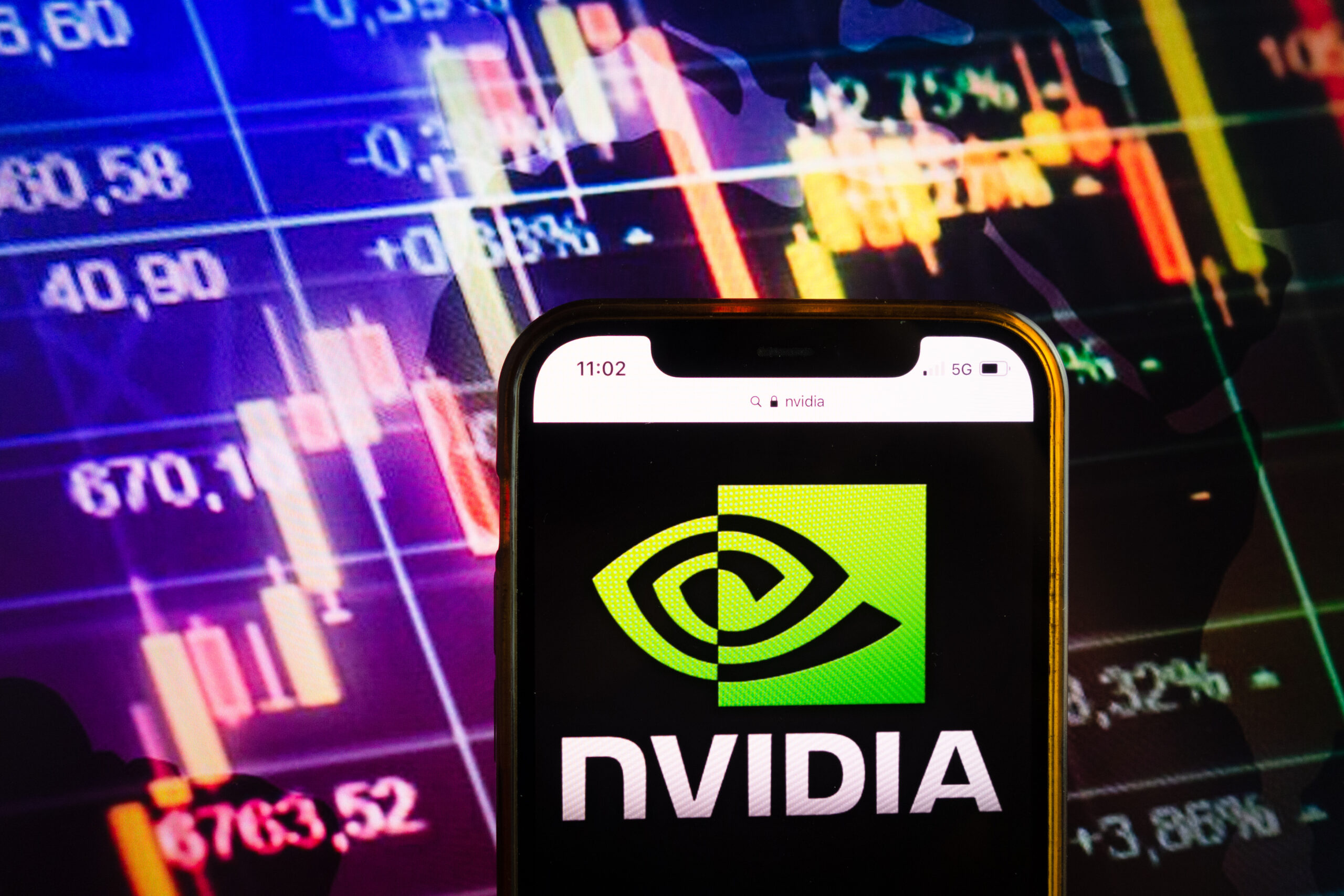In an era of increasing geopolitical tensions, you might assume that international technological collaboration is on the decline. However, Nvidia CEO Jensen Huang recently challenged this notion during a visit to Hong Kong. As the United States considers tightening export controls, Huang’s message was clear: global cooperation in technology remains crucial. His remarks highlight the delicate balance between national interests and the need for open scientific exchange. As you navigate the complexities of the tech industry, understanding this perspective is essential. Huang’s insights offer a glimpse into how industry leaders are approaching the challenges of innovation in a fractured world, and what it means for the future of artificial intelligence and sustainable technology development.
Nvidia CEO Jensen Huang Advocates for Enduring Tech Collaboration

The Power of Global Partnerships
Nvidia CEO Jensen Huang’s recent visit to Hong Kong is a reminder of the importance of international cooperation in technology. Huang emphasized that open scientific collaboration has been and will continue to be the cornerstone of societal and technological progress. Despite potential stricter U.S. export controls looming on the horizon, he expressed unwavering confidence that global partnerships in tech innovation will persist.
Jensen Huang : Navigating Challenges with Collaborative Solutions
Huang’s vision extends beyond mere rhetoric, addressing pressing concerns such as the significant energy demands of artificial intelligence. He proposed innovative solutions that leverage global expertise, advocating for the strategic placement of AI supercomputers near sustainable energy sources. This approach not only optimizes energy use but also demonstrates how international collaboration can tackle complex environmental challenges.
Inspiring the Next Generation of Tech Innovators
Speaking to graduates at the Hong Kong University of Science and Technology, Huang declared that “the age of AI has started.” His message to the new generation was clear: embrace the transformative potential of AI to address global issues. Huang reinforces the idea that the future of technology lies in our ability to work together across nations and cultures.
Nvidia CEO Jensen Huang: Overcoming U.S.-China Tensions Through Global Partnerships
In an era of increasing geopolitical tensions, the tech industry finds itself at a critical juncture. However, Nvidia CEO Jensen Huang’s recent remarks in Hong Kong underscore a commitment to fostering global collaboration in technology, despite potential challenges.
The Enduring Power of Scientific Cooperation According to Jensen Huang
Huang emphasized that open scientific collaboration has been the bedrock of technological progress for decades. This approach has driven innovation across borders, leading to breakthroughs that benefit humanity. By maintaining these international partnerships, the tech industry can continue to push the boundaries of what’s possible, even in the face of political headwinds.
Navigating Regulatory Challenges
As the landscape of international trade regulations evolves, tech companies must adapt their strategies. Huang expressed confidence that cooperation will persist, regardless of future policy changes. This optimism suggests that industry leaders are prepared to find creative solutions to maintain global tech partnerships while respecting new regulatory frameworks.
Jensen Huang Visions in Leveraging AI for Global Challenges
Huang’s vision extends beyond mere collaboration. He sees artificial intelligence as a powerful tool for addressing complex global issues, including environmental challenges. By strategically placing AI supercomputers near sustainable energy sources, companies can optimize energy use while minimizing environmental impact. This approach demonstrates how international cooperation can lead to innovative solutions that benefit all nations involved.
Huang’s Vision: Harnessing AI for Environmental Solutions
In an era where technological advancement and environmental concerns intersect, Nvidia CEO Jensen Huang has proposed a bold vision for leveraging artificial intelligence to address pressing ecological challenges. Recognizing the substantial energy demands of AI systems, Huang advocates for a strategic approach that balances innovation with sustainability.
Optimizing AI Infrastructure
Huang’s proposal centres on the strategic placement of AI supercomputers near sustainable energy sources. This innovative approach aims to optimize energy consumption while minimizing the environmental impact of these powerful computing systems. By positioning these facilities away from densely populated areas, Huang envisions a future where AI can operate at peak performance without compromising on ecological responsibility.
Tackling Global Issues with AI
The Nvidia CEO’s vision extends beyond mere energy efficiency. Huang sees AI as a transformative tool capable of addressing complex global issues. By harnessing the immense computational power of AI supercomputers, researchers and innovators can develop solutions to environmental challenges that were previously insurmountable. This approach aligns with Huang’s belief that the “age of AI” has begun, ushering in unprecedented opportunities for positive change.
Jensen Huang Emphasis on Balancing Progress and Sustainability
Huang’s vision underscores the importance of responsible technological advancement. By advocating for the strategic use of AI in environmental problem-solving, he demonstrates a commitment to progress that doesn’t come at the expense of our planet. This forward-thinking approach sets a precedent for how tech leaders can contribute to a more sustainable future while pushing the boundaries of innovation.
Inspiring the Next Generation of Tech Leaders
Embracing AI’s Transformative Potential
As Jensen Huang addressed the graduates at the Hong Kong University of Science and Technology, his message resonated with clarity and urgency. “The age of AI has started,” he declared, igniting a spark of excitement and responsibility in the young minds before him. This proclamation serves as both an invitation and a challenge to the next generation of tech innovators.
Huang’s words underscore the immense opportunities that lie ahead in the rapidly evolving field of artificial intelligence. By encouraging graduates to harness AI’s capabilities, he’s not just speaking about career prospects, but about the power to reshape our world. The CEO’s vision extends beyond mere technological advancement; it encompasses using AI as a tool to tackle complex global issues that have long eluded solutions.
Navigating the Future with AI
The Nvidia CEO’s address highlights several key points for aspiring tech leaders:
Global collaboration: Despite geopolitical tensions, the importance of international cooperation in advancing technology remains paramount.
Environmental consciousness: As AI’s energy demands grow, so does the need for sustainable solutions and strategic placement of computing resources.
Problem-solving focus: The true value of AI lies not in the technology itself but in its application to real-world challenges.
By emphasizing these aspects, Huang is laying out a roadmap for the future—one where technological progress and global responsibility go hand in hand. His message serves as a rallying cry for graduates to not only embrace the AI revolution but to actively shape its direction toward the betterment of society.
Navigating the Evolving Landscape of International Regulations
Adapting to Policy Shifts
As global tech companies like Nvidia navigate the complex terrain of international regulations, adaptability becomes paramount. The potential for stricter U.S. export controls under new administrations creates a dynamic environment where companies must remain agile. You’ll find that successful firms are those that can swiftly adjust their strategies to align with evolving policies while maintaining their commitment to innovation and collaboration.
Balancing Cooperation and Compliance
In this era of geopolitical tensions, you’ll notice a delicate balance emerging between international cooperation and regulatory compliance. Tech leaders like Jensen Huang emphasize the enduring importance of global partnerships, recognizing that scientific progress often transcends borders. However, you must also be aware that companies are increasingly required to implement robust compliance frameworks to ensure adherence to export controls and trade regulations.
Leveraging Diplomatic Channels
To navigate this complex landscape, you’ll observe tech giants increasingly engaging in diplomatic efforts. By fostering open dialogues with government officials and policymakers, companies can help shape policies that promote innovation while addressing national security concerns. This proactive approach allows firms to anticipate regulatory changes and position themselves advantageously in the global market.
Key Takeaways
As you navigate the complex landscape of global technology and AI development, remember that collaboration remains a powerful force for progress. Jensen Huang’s vision of international cooperation, even in challenging times, serves as a reminder of the potential that lies in shared knowledge and resources. By embracing this collaborative spirit and focusing on innovative solutions to global challenges, you can contribute to shaping a future where technology serves humanity’s best interests. As AI continues to evolve, your role in guiding its development and application becomes increasingly crucial. Embrace the opportunities that lie ahead and strive to be at the forefront of this technological revolution, always keeping in mind the broader implications for society and the environment.
More Stories
Android Instant Apps Retired After Years of Low Adoption
Google decides to retire Android Instant Apps by December 2025 as they struggled to capture user interest since its launch in 2017.
OpenAI Cracks Down on State Sponsored Abuse of ChatGPT
OpenAI has taken a decisive step to thwart state-sponsored exploitation of its ChatGPT technology. As detailed in a comprehensive threat intelligence report, OpenAI has disabled numerous accounts implicated in cyber operations orchestrated by state actors from countries including Russia, China, and North Korea.
Record‑Breaking Rupiah Loan Powers AI‑Ready Batam Data Hub
They secured a historic record-breaking Rupiah 6.7 trillion loan from financial giants DBS and UOB. This monumental financing supports an AI-ready data center campus at Batam’s Nongsa Digital Park.
Threads Unveils Native DM Test to Break Instagram Dependency
By unveiling a native DM (direct messaging) feature, Threads aims to sever its dependency on Instagram for private communications, a shift poised to redefine how users interact within the platform.
Google Closes Loophole That Let Hackers Bruteforce Your Hidden Phone Number
Recently, Google took decisive action to close a significant vulnerability that could potentially expose users’ hidden phone numbers to malicious actors.
Instagram Edits Brings In-App Teleprompter to Boost Creator Confidence
Introducing the in-app teleprompter within Instagram Edits, a tool designed to bolster your on-camera confidence and enhance viewer engagement.


